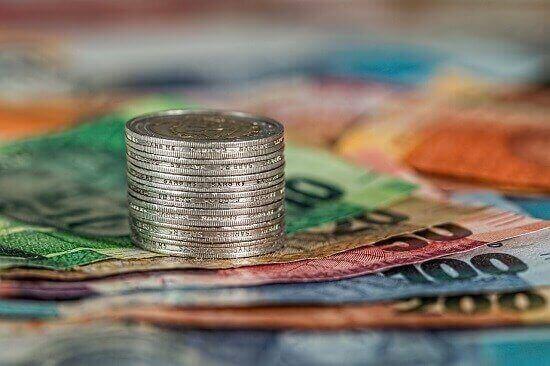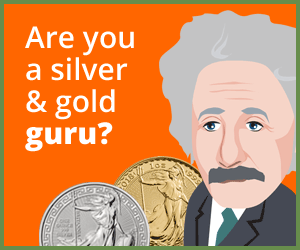Blog
The Benefits of Silver in a Diverse Investment Portfolio
One may have heard the much clichéd term – ‘never keep all your eggs in one basket.’ When it comes to financial investing, this is however true. Portfolio diversification is a technique used by savvy investors that does just that. It is a well-researched, concerted strategy that reduces the risk of a portfolio by spreading investments across a number of asset classes, financial instruments, industries and commodities. We go on to discuss this topic in detail throughout this article.
Download our Insiders Guide to Silver Investment FREE
The case for portfolio diversification
The actual decision to diversify is guided by mathematical calculations carried 

What else should I know about risk?
Diversifiable risk, however, refers to risks associated with specific industries, countries, asset classes, company stocks, etc. The investor can choose not to invest in a certain country or industry in order to avoid the associated risks. The objective of the diversification exercise is to make investments in different asset classes in a way that ensures that the overall portfolio gains. This happens by offsetting the risk associated with a particular asset class with the gain enjoyed through investments in another asset class.
Silver as a commodity investment
Real estate and commodities are asset classes often added to stocks, bonds, cash and financial instruments when planning a diversified portfolio. Silver is a commodity, as is gold. The two precious metals have always been a safe haven for investors hedging against market risk and inflation. Inflation slowly devalues cash held by an investor in bank accounts and cash deposits. The rate of interest provided by banks fails to offset the risks of inflation.
How can we protect ourselves?
As inflation triggers price rises everywhere, the price of silver also rises and protects investors against inflationary forces. Similarly, when stock markets crash, investors pull their money out of markets and move it into traditionally safe havens like real estate and precious metals. Again, the price of silver rises, making it an attractive investment to hedge against market risk. In 2011, the US debt ceiling crisis saw Moody’s and S&P downgrading their rating of the US economy. As a result, silver prices peaked and on April 25, 2011, silver traded at $49.80 per ounce on the New York spot market.


The performance of silver as an asset class
Historically, the price of silver has always tracked gold although the price of gold against silver is 75:1. This makes silver an attractive investment in the long run. While COMEX silver prices have declined from the heady days of 2011 when it traded close to $50 an ounce to a current price of $17.04 per ounce, it has held steady over the last year, dropping by only a dollar. As an investable asset class, silver has the following attributes:
- Silver is more appealing to investors simply because
of its lower price point. You can buy a kilo of silver for only £412, but a kilo of gold will set you back by £31,162
- The demand for silver is a lot greater than gold, due to its industrial use. But for every ounce of gold, the industry mines 9 ounces of silver. Experts believe that the current gold/silver ratio of 75:1 will not last. They are pegging silver to rise to $140 an ounce by 2019
- Silver and other ‘hard’ assets are an excellent hedge against the threat of cybercrime. Hackers can get in and manipulate digital data and cryptocurrencies, but silver coins and bars are safe from such risks
- Silver offers excellent short-term liquidity to an investor. Other defensive asset classes like property cannot be sold quickly. Gold being more expensive does not provide a suitable avenue for freeing up capital for smaller tranches of investment. Silver is, therefore, an excellent choice for an investor who wants to hedge risks in the short term, and then wants to liquidate small chunks of capital to put back into the market once it rises
Call us for expert advice on investment in precious metals
Our investment experts are always available to discuss your investment needs and can help you diversify your investment portfolio by investing in silver. Call 020 7060 9992 to speak with one of our advisors or email us and we will be in touch with you. Once you decide to invest in metals to diversify your portfolio, we can help you make the right choice.
Image: Pixabay


